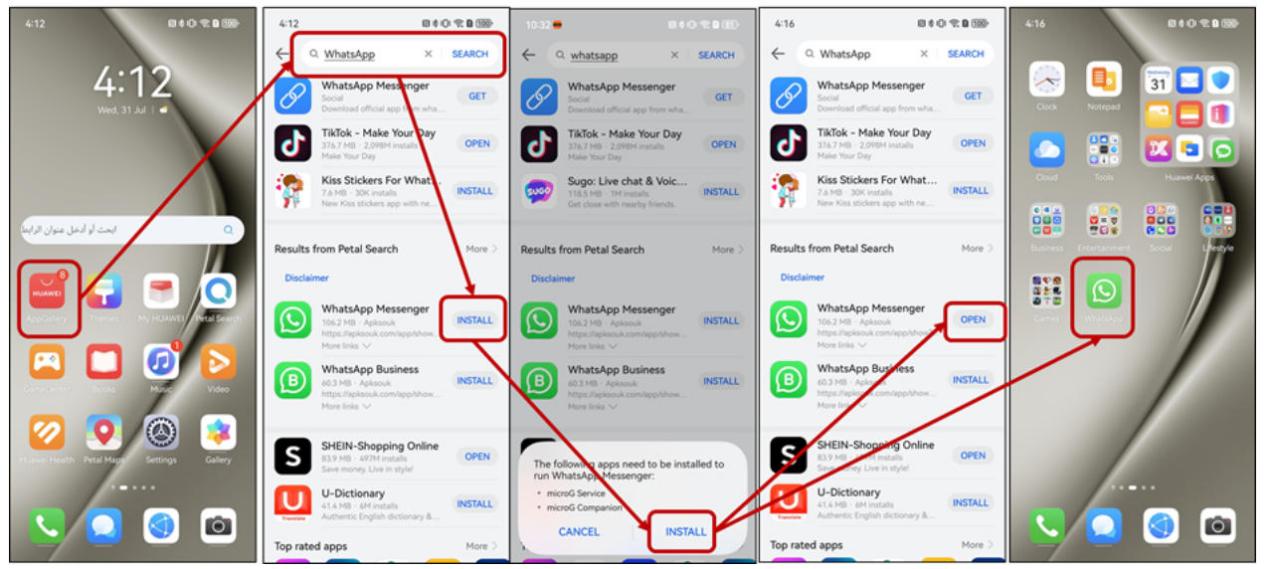Smartphones have become indispensable tools in our daily lives, handling everything from banking to personal communication. With millions of apps available, downloading new software seems harmless—until malware steals your data, a fake app drains your battery, or spyware tracks your online activity. Cybercriminals constantly refine their tactics, making vigilance crucial even for routine downloads. A single malicious app can compromise your personal information, drain your finances, or even hijack your device for illegal activities. In this article, we’ll explore practical steps to ensure every app you install is safe, functional, and respectful of your privacy, so you can enjoy technology without unnecessary risks.

1. Use Official App Stores Only
Why Google Play/AppGallery Are Safest
Official app stores invest heavily in security, employing automated scans, machine learning algorithms, and human reviewers to weed out malicious software. They verify developer identities, reducing the risk of impersonation, and promptly remove flagged apps. While no system is perfect, their rigorous protocols catch most threats before they reach users. For instance, Huawei smartphones, known for their powerful performance and advanced security features, rely on these verified platforms to ensure app integrity. Therefore, users often wonder, can huawei use whatsapp safely? The answer is yes, as long as they download the app from official sources like Huawei’s AppGallery. Additionally, apps from these stores receive regular security updates, closing vulnerabilities that hackers might exploit.

Risks of Third-Party App Markets
Third-party stores often lack stringent checks, hosting pirated or modified apps bundled with spyware. A 2023 study found that 1 in 5 apps from unofficial sources contained hidden malware, including keyloggers and ransomware. These platforms may offer tempting perks like free premium features, but the trade-off—data theft or unauthorized charges—is rarely worth it. Some third-party stores even repackage legitimate apps with malicious code, turning a simple game or utility tool into a security nightmare. Additionally, apps from unvetted markets might not receive critical security updates, leaving your device vulnerable long after installation.
2. Thoroughly Check App Details
Before tapping "Install," scrutinize the app’s listing carefully. Legitimate developers provide clear descriptions, high-quality screenshots, and links to functional websites. Check the download count—popular apps with millions of downloads are generally safer, though fake apps sometimes manipulate these numbers. Look at the release date; newly launched apps with few reviews should be approached cautiously. Read recent reviews for mentions of crashes, excessive ads, or suspicious behavior. Spelling errors, generic icons (e.g., a plain "PDF reader" with a stock image), or vague developer information often signal scams. For example, a flashlight app requesting access to your contacts or microphone should raise immediate red flags. If an app’s permissions seem excessive for its function, it’s better to skip it and find a more trustworthy alternative.
3. Manage App Permissions Wisely
Understanding Permission Risk Levels
Apps require permissions to function, but overreach is common. A weather app needing location access makes sense, but a calculator asking for microphone permissions does not. Android and Huawei’s EMUI categorize permissions by risk (e.g., "Body Sensors" are high-risk, while "Storage" is low). Always deny unnecessary requests during installation—you can often grant them later if truly needed. Some apps may try to justify excessive permissions with vague explanations like "improving user experience," but unless the request aligns with the app’s core function, it’s best to reject it.
Adjusting Permissions Post-Installation
Regularly audit permissions via your phone’s settings. Revoke access for unused features (e.g., a social media app no longer needs your camera if you’ve stopped posting stories). Huawei devices simplify this with granular control, letting you disable permissions like GPS for specific apps while allowing others. This balance ensures functionality without compromising privacy. Additionally, some apps may request new permissions after updates, so always review changes before accepting them. If an app stops working after restricting permissions, consider whether it’s worth the privacy trade-off—sometimes, a different app with better privacy practices is a smarter choice.
4. Detect Fake & Malicious Apps
Fake apps mimic popular services to trick users. Check the developer’s name—scammers often use slight misspellings (e.g., "WhatsApp Inc." vs. "WhatsApp LLC"). Compare the app’s branding with the official website; inconsistencies in logos or colors are telltale signs. Malicious apps may also demand excessive fees or subscriptions upfront. If an app pressures you to act quickly ("Update NOW to avoid account deletion!"), pause and investigate. Another red flag is an app that requests admin-level access to your device, as this could allow hackers to lock or wipe your phone remotely. Always cross-check app listings with the official developer’s website to confirm legitimacy.
5. Post-Download Security Verification
After installing, monitor your phone for unusual behavior like rapid battery drain, sluggish performance, or sudden pop-ups. Use built-in security tools to scan for malware. Update apps promptly—patches often fix critical vulnerabilities. For sensitive apps (banking, email), enable two-factor authentication as an extra layer of protection. If an app starts displaying intrusive ads or redirecting you to unknown websites, uninstall it immediately. Regularly clearing cache and app data can also help prevent hidden tracking scripts from accumulating.
Conclusion
App safety hinges on habitual caution. Stick to trusted stores, research before downloading, and maintain strict permission controls. Even powerful devices like Huawei phones benefit from these practices, ensuring smooth, secure operation. By adopting these steps, you’ll minimize risks while enjoying the convenience of mobile apps—whether you’re messaging friends via WhatsApp or managing finances. Start today: your digital security is worth the effort.
